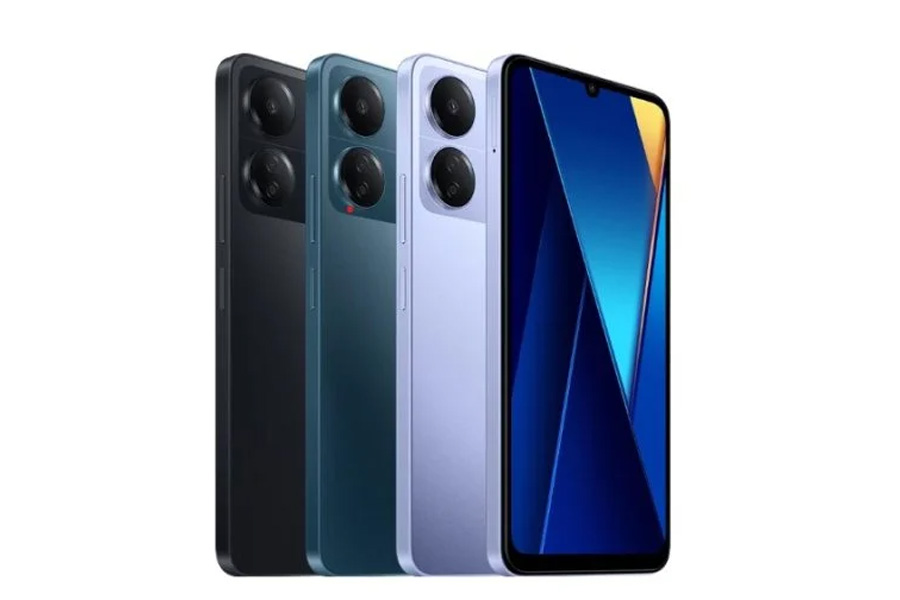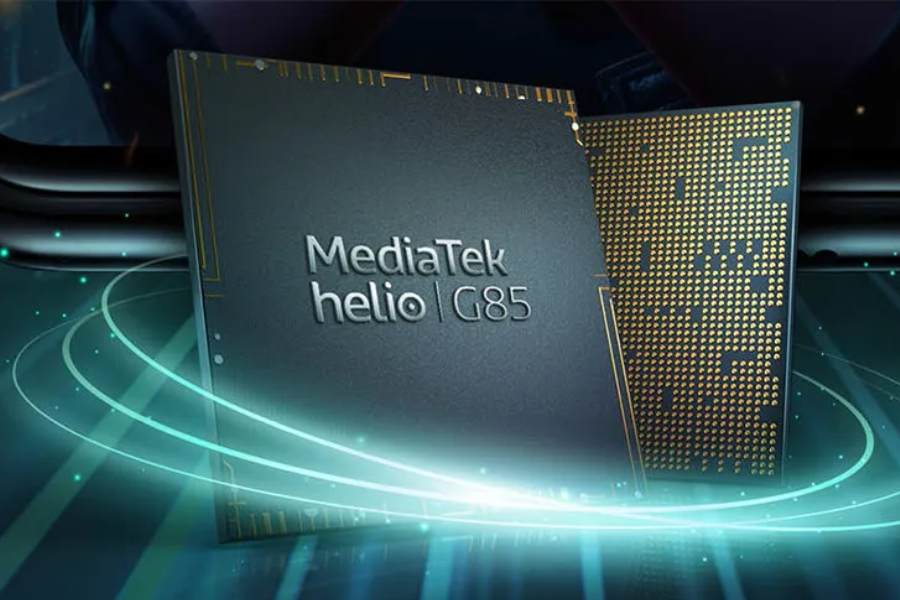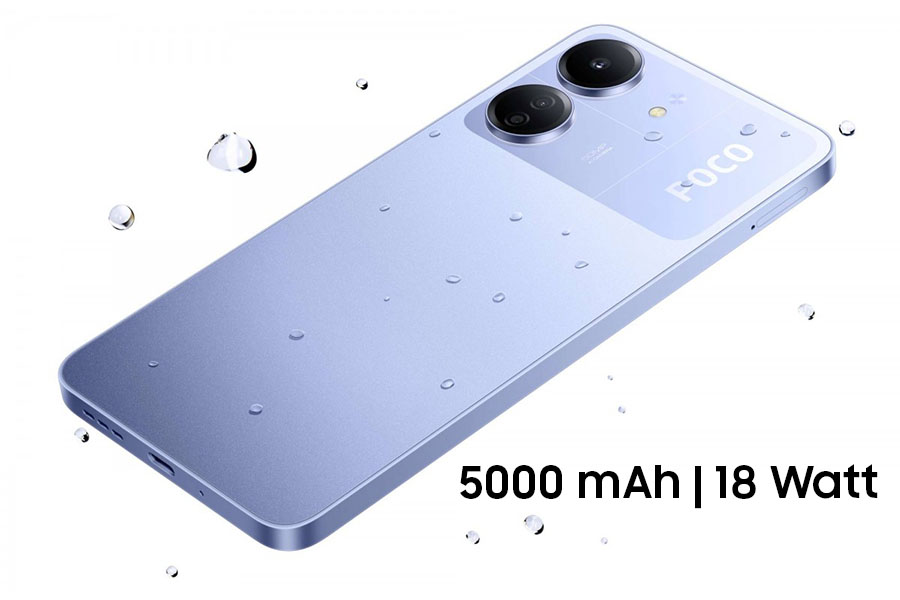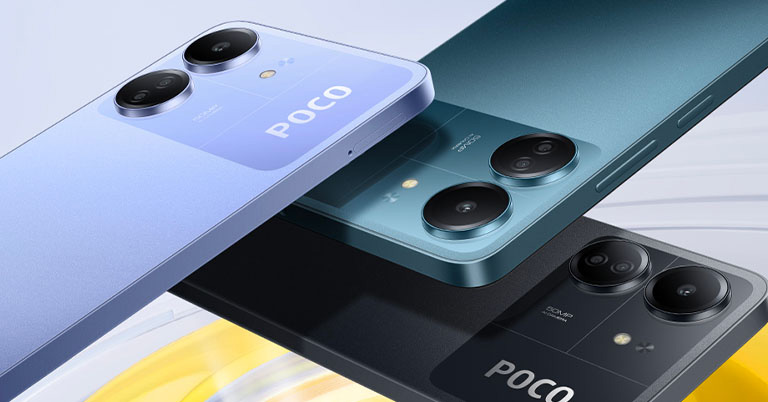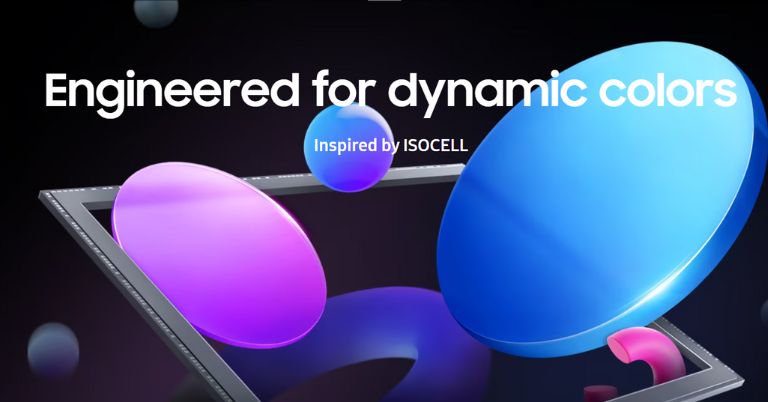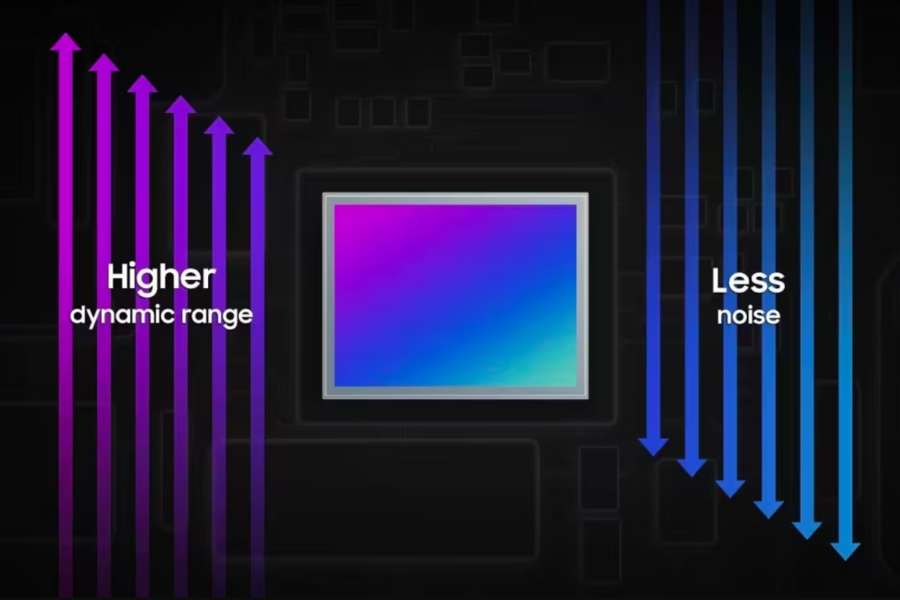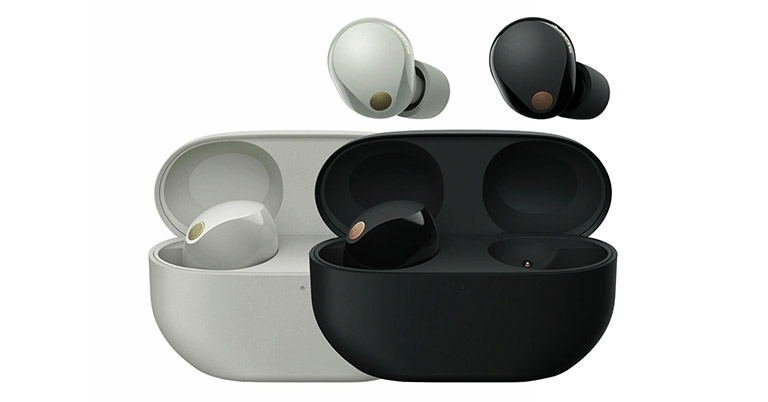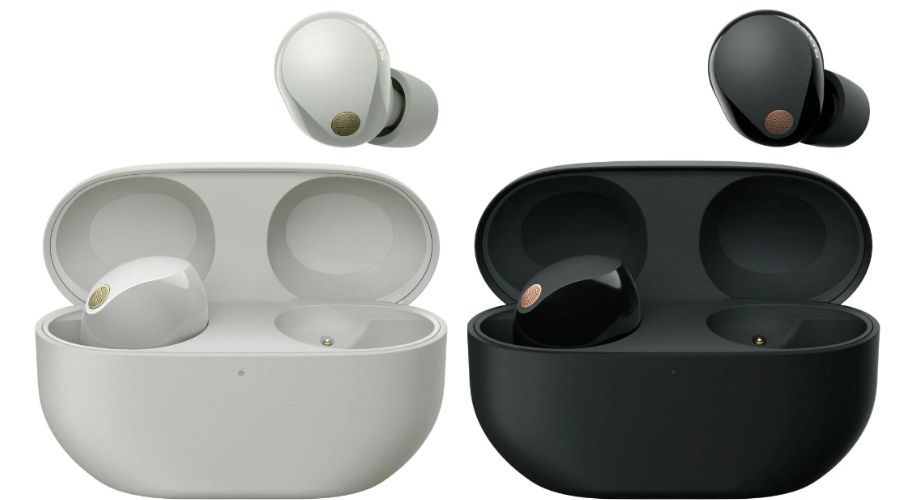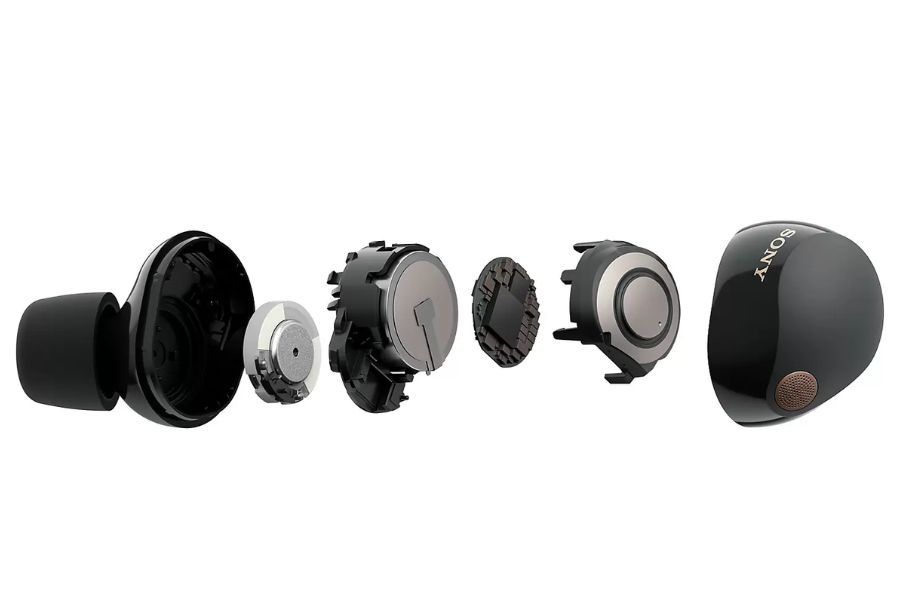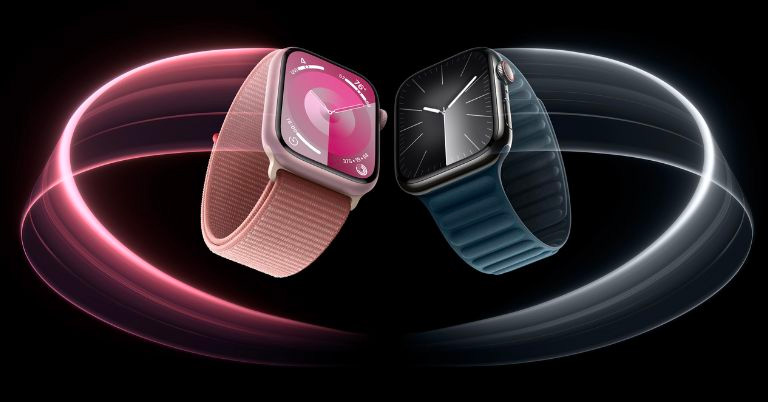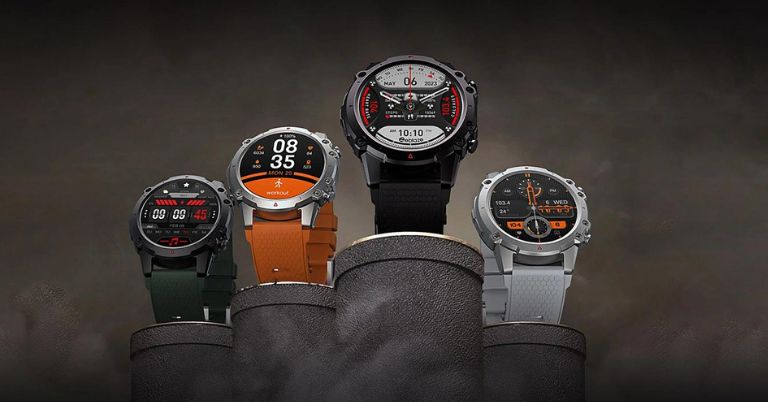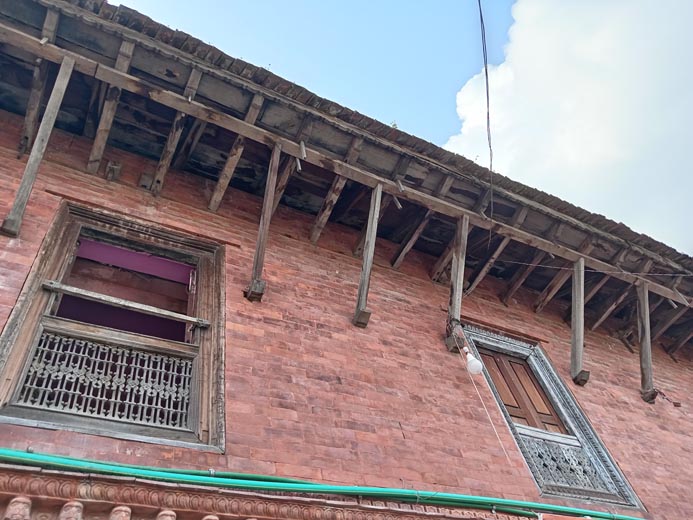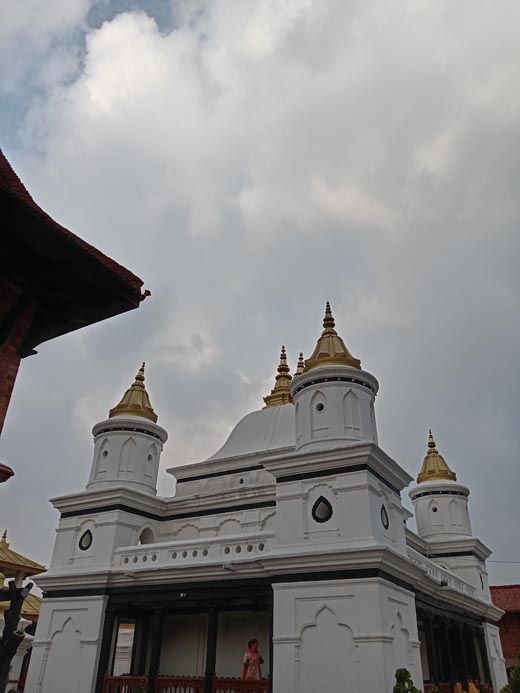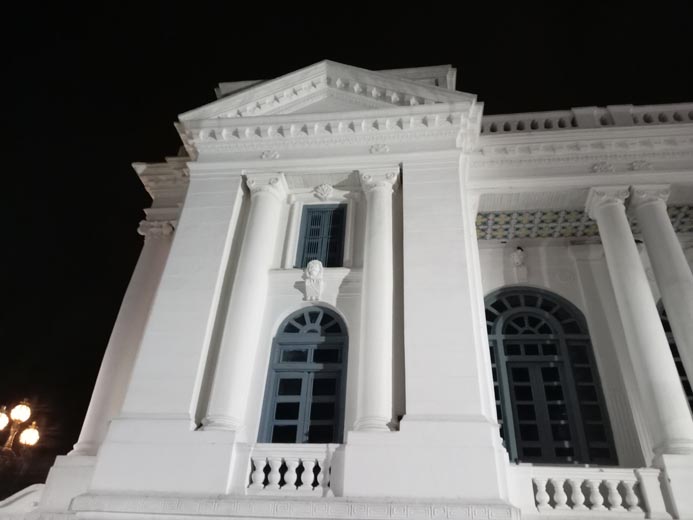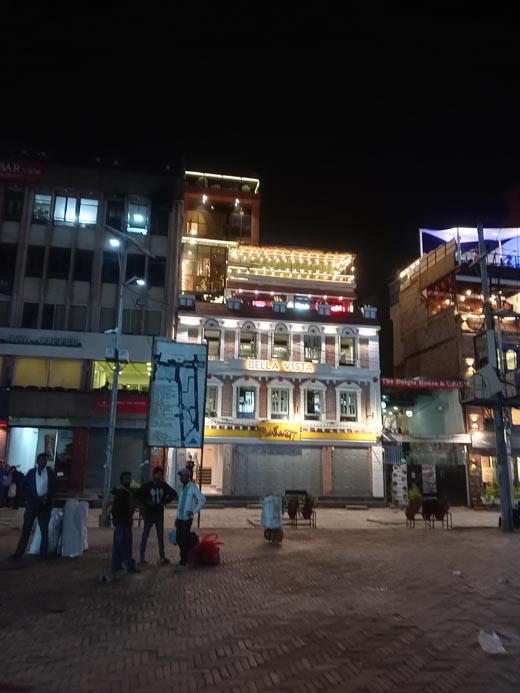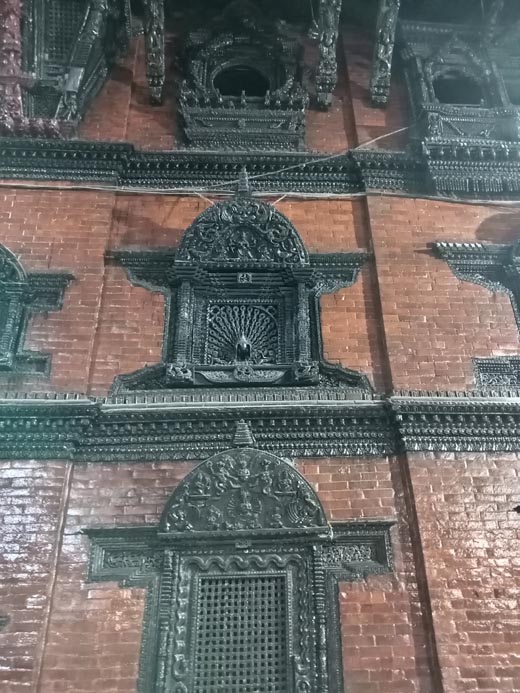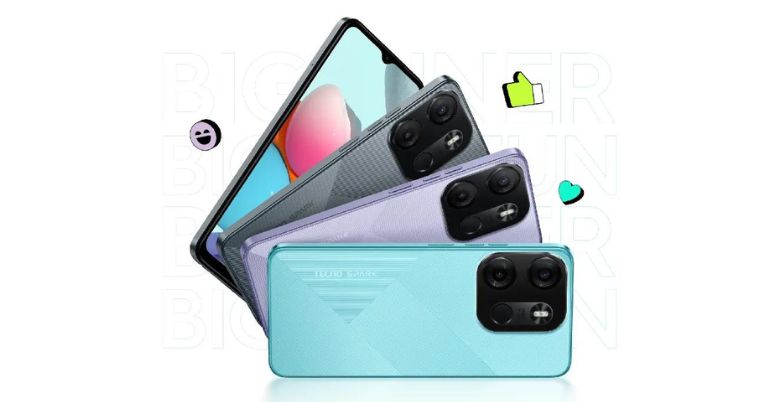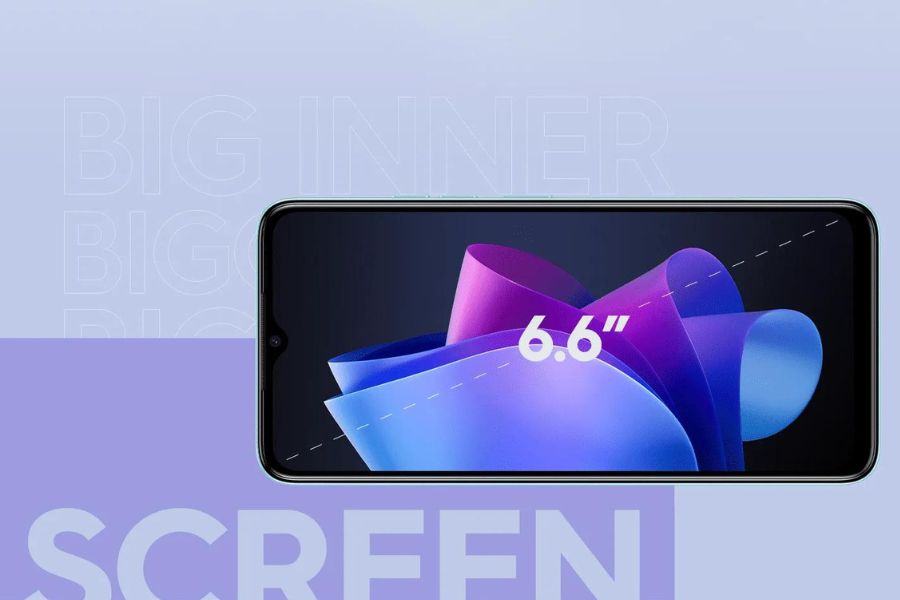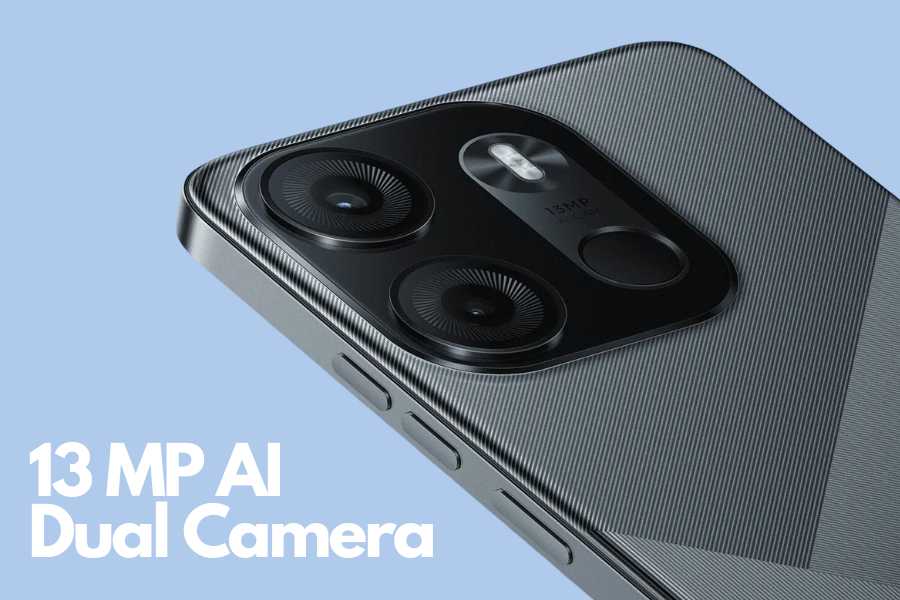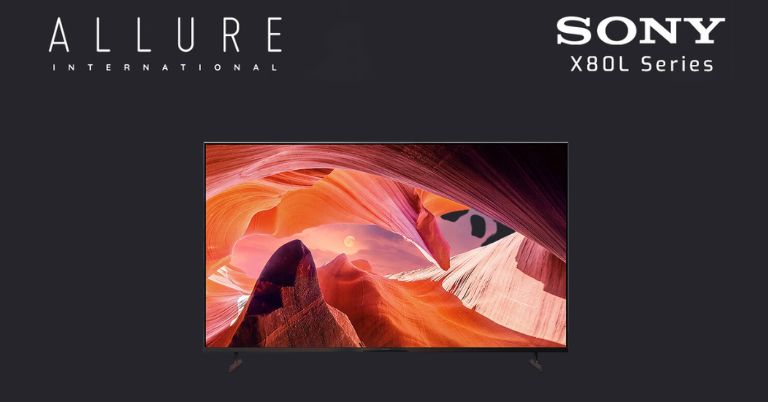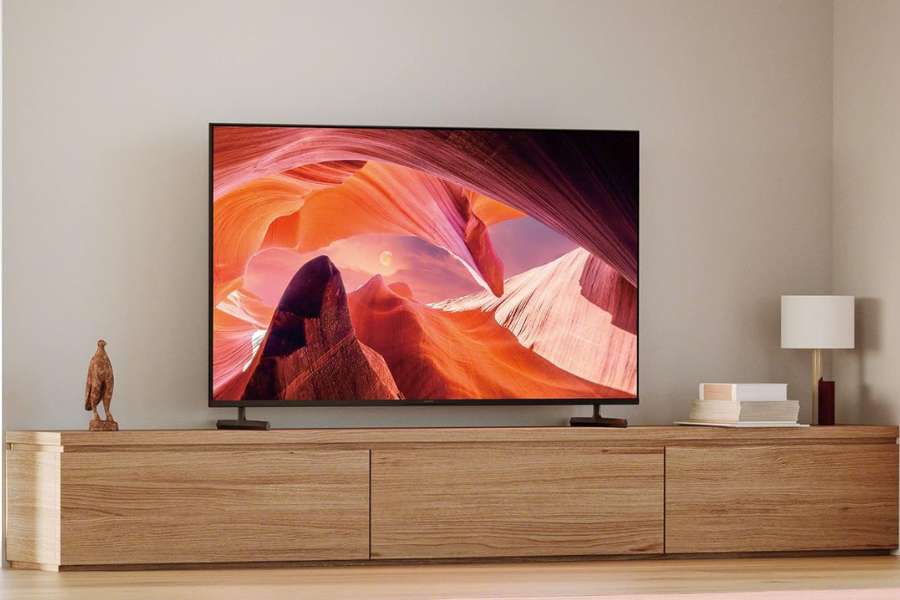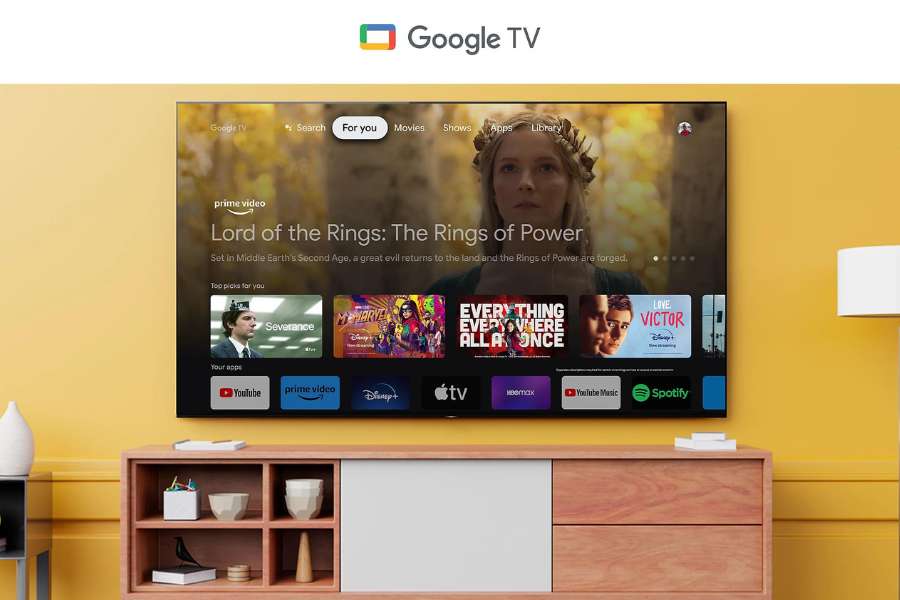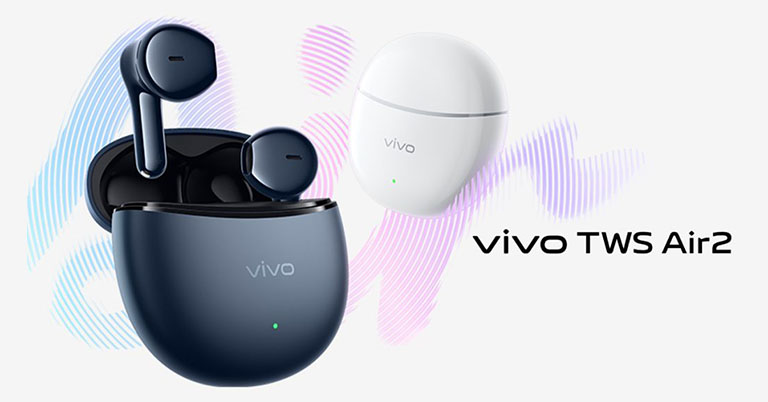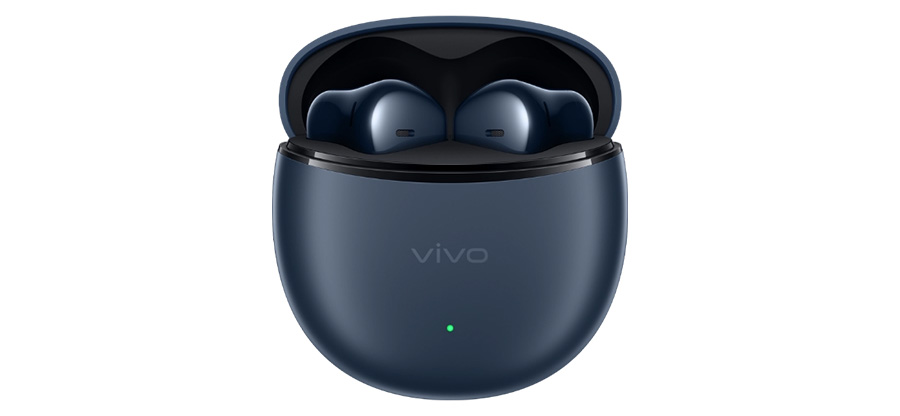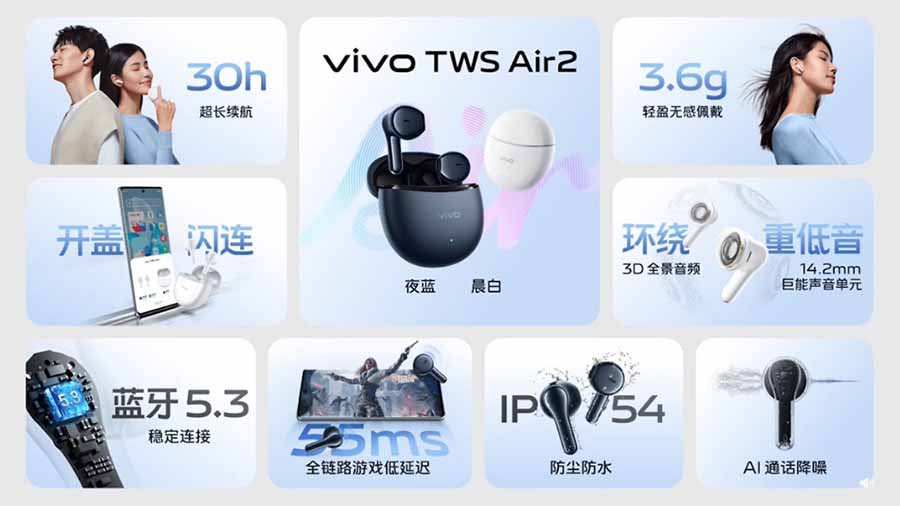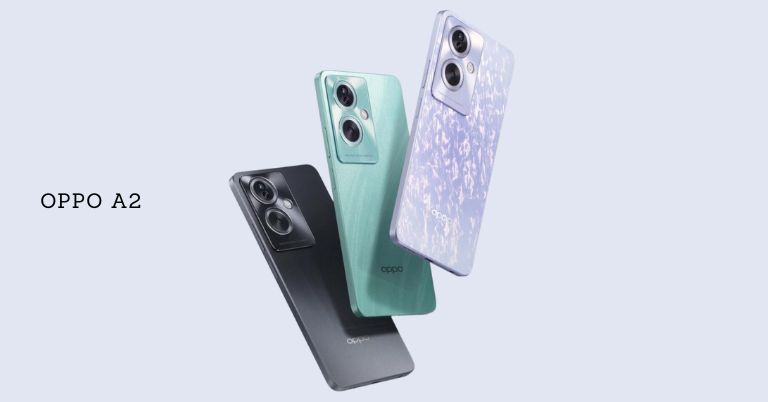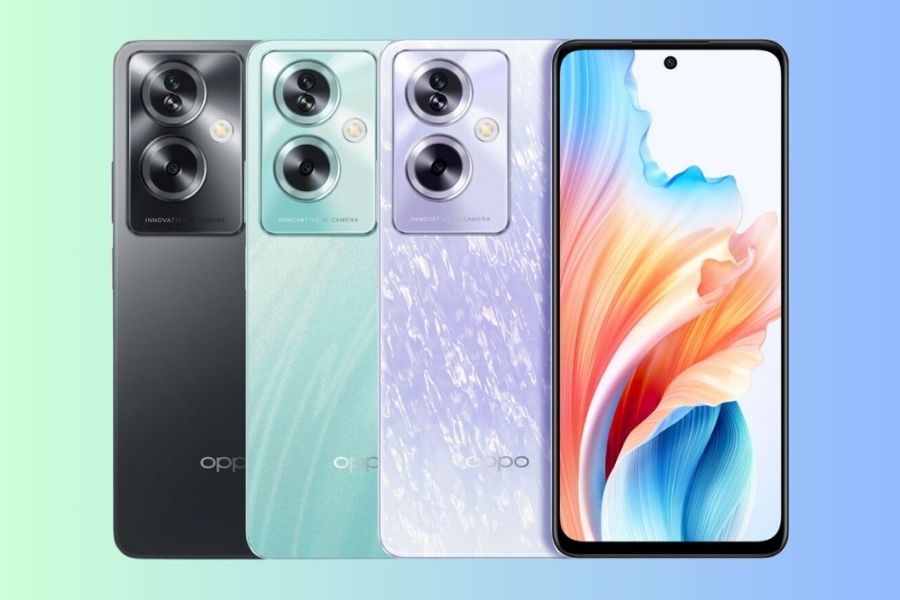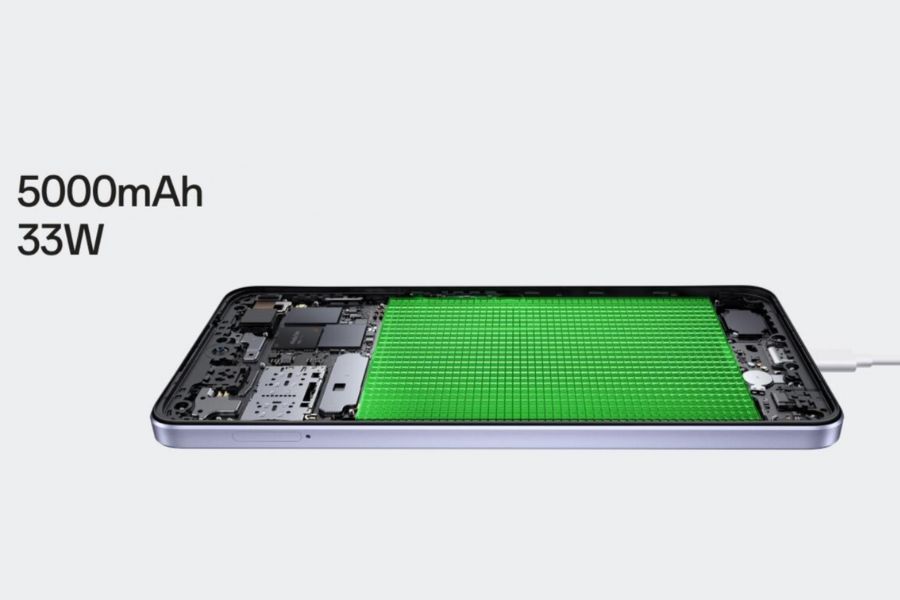Budget phones are pretty popular in the Nepali market. However, I was never a fan of the segment. So, when I was handed the Honor X6a — truly speaking — I didn’t have much hope with the phone. But boy, did that take me by surprise! Well, kind of. More about that in this full review of the Honor X6a:
Honor X6a Review: Specifications
- Design: Flat design with all-plastic body
- Dimensions: 163.32 mm x 75.07 mm x 8.35 mm
- Weight: 188 grams
- Display: 6.56” TFT LCD Panel, 90Hz Refresh Rate, 20.15:9, 16.7M colour depth
- Resolution: HD+ (1612 x 720)
- Chipset: Octa-core MediaTek Helio G36 (12nm)
- GPU: IMG GE8320
- RAM: 4 GB or 6 GB
- ROM: 128 GB + expandable with MicroSD card
- OS & UI: Android 13 with MagicOS 7.1 on top
- Rear Camera: Triple Camera (50 MP Primary + 2 MP Depth Sensor + 2 MP Macro)
- Front Camera: 5 MP Camera (Centre-aligned waterdrop cutout)
- Security: Side-mounted fingerprint sensor, Face Recognition
- Sensors: Gravity Sensor, Ambient Light sensor, Proximity sensor
- Navigation: GPS, AGPS, Glonass, BeiDou, Galileo
- Battery: 5,200 mAh Lithium Polymer cell with 22.5W super fast charging
- Connectivity: Dual SIM, 4G LTE, Dual-band WiFi with WiFi Direct, Bluetooth v5.1, USB 2.0 (Type-C), 3.5mm headphone jack
- Colour Options: Sky Silver, Midnight Black, and Cyan Lake
- Buy Honor X6a here
My unit here is a Midnight Black variant with a 4GB + 128GB configuration. This handset retails for NPR 17,490 and comes with a silicone case, charging cable, and a power brick included in the box.
Honor X6a Review
Design and Build
- Dimensions: 163.32 mm x 75.07 mm x 8.35 mm
- Weight: 188 grams
- Material: All plastic build
When I unboxed the pack and saw the phone’s design, I was quite impressed. It looks premium for the most part — the awkward-looking flash gives it off. But other than that, the overall build is pretty sturdy. It has flat edges which didn’t feel the most comfortable when holding, but, slapping the case on it fixes that pretty easily.

Thanks to its matte finish, it’s quite resistant to smudges. However, it is prone to collecting dust and dirt around its massive camera cutouts. It took me some time to get used to its side-mounted fingerprint sensor. Other than that, the Honor X6a is pretty balanced weight-wise as well — it slips in and stays in your pocket pretty comfortably.
Display
- 6.56” TFT LCD Panel, 20.15:9 aspect ratio
- HD+ (1612 x 720), 90Hz Refresh Rate, 16.7M colour depth
The screen of the phone is quite vibrant and good to look at. The viewing angles are decent as well. Similarly, talking of the bezels, you won’t notice them for the most part — except for its bulky chin.

Scrolling through your feed is usually quite smooth. However, there are noticeable stutters here and there, due to which it doesn’t feel like you’re looking at a 90Hz display. Other than that, typing on it and performing gestures feels alright. The haptics on this phone are pretty poor though, which is unfortunately not out of line for a budget device like this. You can fiddle around and set the haptics as per your liking, so it isn’t something to sweat over per se.
Camera
- Rear Camera: 50 MP Primary + 2 MP Depth Sensor + 2 MP Macro
- Front Camera: 5 MP Camera
Now this is where the phone caught me by surprise! Generally speaking, the camera is pretty good. So much so, that an iPhone user colleague of mine was thoroughly impressed with the photos it captured. This isn’t to say that the camera is absolutely phenomenal — I’d be lying if I said that.

Daytime
Taking photos in the daytime, and in well-lit areas during the night results in pretty-to-look-at images. However, it starts getting all hazy once you zoom in. So, even though the camera is a 50MP sensor, it doesn’t seem to tap into its full potential. The phone struggles with HDR images. And, you can see it working hard to process it if you open the image as soon as you capture it.
Similarly, the images are a bit oversharpened and a bit oversaturated. I like poppy colours in my photos, so I will not complain about the saturation part. However, if you like your images raw, you need to bear that in mind.
Portrait
The portraits this phone produces are decent. The edge detection on the Honor X6a is pretty good as well. It can over-brighten the background at times, but nothing to throw you off.
Night Shots
Now, this is where the camera crashes down to the ground. The night photos are all over the place. In well-lit conditions, the photos are okay at best, but, it struggles to capture the details. And, the images plummet down to grains in low-light conditions.
Selfie
On the front, the Honor X6a comes with a single shooter that’s only a 5MP — so asking too much would be criminal. Nevertheless, it keeps up fairly, in my opinion. The results are similar to the rear camera — good images in daytime and well-lit environments at night, and grainy in lowlight conditions.
Talking of the macro lens, well, it’s there. That’s all I can say about it. And, in terms of video, it does what it promises. It records in 1080p at 30 fps, but the results are extremely shaky. So, all in all, Honor X6a’s camera gives up when its limits are tested, however, it will give you decent-looking photos for the most part.
Performance
- CPU & GPU: Octa-core MediaTek Helio G36 (12nm) + IMG GE8320
- Memory & Storage: 4 GB + 128 GB
The camera was quite good and I didn’t have any issues with performance during regular usage either. It was mostly smooth, so I thought, why don’t I put this phone to a real test? For the sake of this review, I pushed this phone to its limit, and I must say it kept up — kind of. It was not designed to play games on obviously. Well, at least not smoothly.
Note: You need to turn on the performance mode in the settings or the game might not even load. Now that’s out of the way, let’s move on with the games.
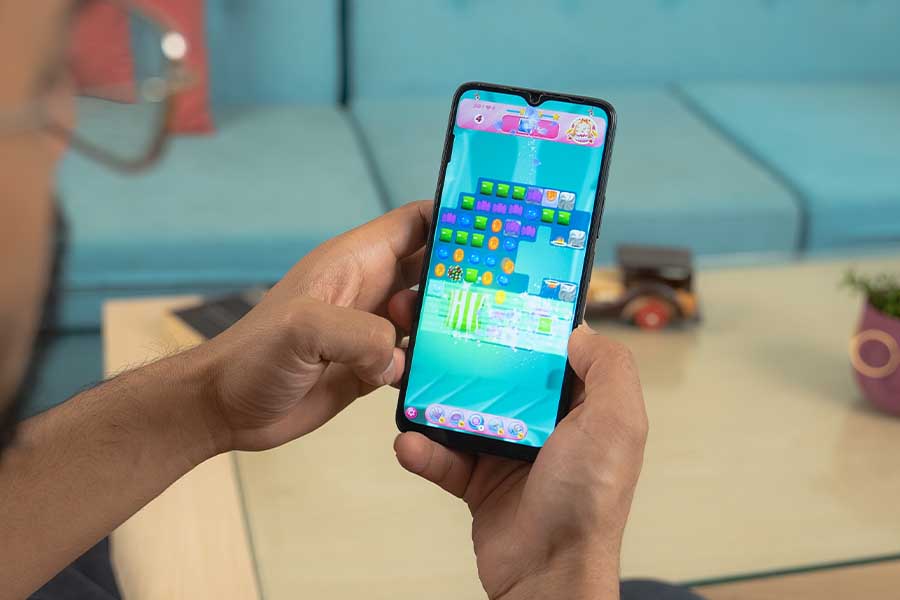
I played different levels of demanding games on this phone. Starting with the obvious choice — Candy Crush Saga! Some stutters here and there, and a few force closes — it was okay, nothing I’d stress over. Then I tried playing Dream League Soccer on it at the highest graphics and FPS. You can play it, all right, but it takes forever to load. So, I found myself enjoying the game on the lowest settings and highest FPS, and accepting the fun of janky graphics.
Lastly, I also tried playing Mobile Legends: Bang Bang on it, cause why not? And again, it is playable, but there is a substantial amount of lag, so much so that it’s frustrating. But, hey, it’s a budget phone, what more to expect?
Battery
- Battery: 5,200 mAh Lithium Polymer cell
- Charging: 22.5W super fast charging
Now the battery is one of the strongest suits of the Honor X6a. This phone has a cell that is on the larger side when it comes to capacity, and coupled with a rather battery-efficient chipset — the battery life is bonkers! This phone gave me two full days of backup on moderate usage. I was surfing the internet, playing games here and there, and clicking a photo or two during this time.

The charging isn’t half bad either. Well, let me pull out my notes — erm. So, this phone charged from 8% to 100% in about 1 hour and 23 minutes. This is a decent charging speed. In the review process, I noticed the Honor X6a takes its sweet time to juice up at first and later picks up the pace. The other thing I noticed was that the decimals being shown when you plug this phone is a sham! I felt lied to, but also found it quite funny at the same time.
Honor X6a Review: Conclusion
All in all, the Honor X6a is a decent offering at the price range with its highs and lows. The battery backup is excellent, the cameras are okay. And, the performance — it’s liveable with. It is good for folks who are looking for a phone with general usage in mind like surfing the internet, snapping some photos, and playing some light games here and there.
However, if you wish to get some more performance out of your phone then going with something like Redmi 12 or even the cheaper Redmi 12C is a good idea. Additionally, I am always sceptical about the longevity of budget phones, and this one is no different. Nonetheless, check out our list of best smartphones under NPR 20,000 to find the best deals in a similar price range.
Honor X6a: Pros and Cons
Pros
- Well-designed
- Good Camera
- Great Battery Life
Cons
- Compromised performance
- Stutters here and there
- Significant quality drop in low-light photos
